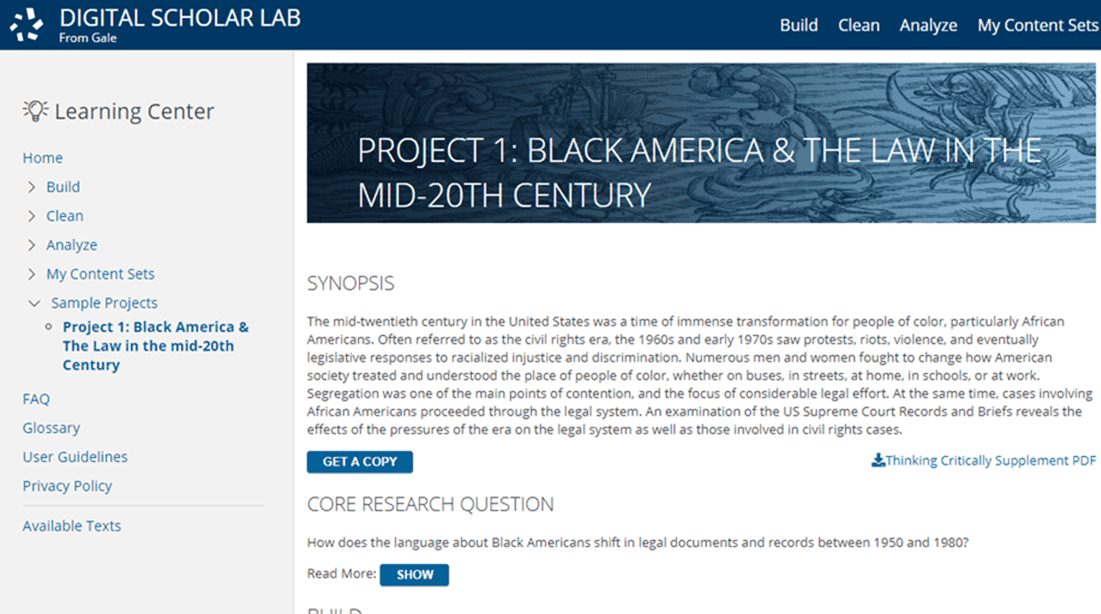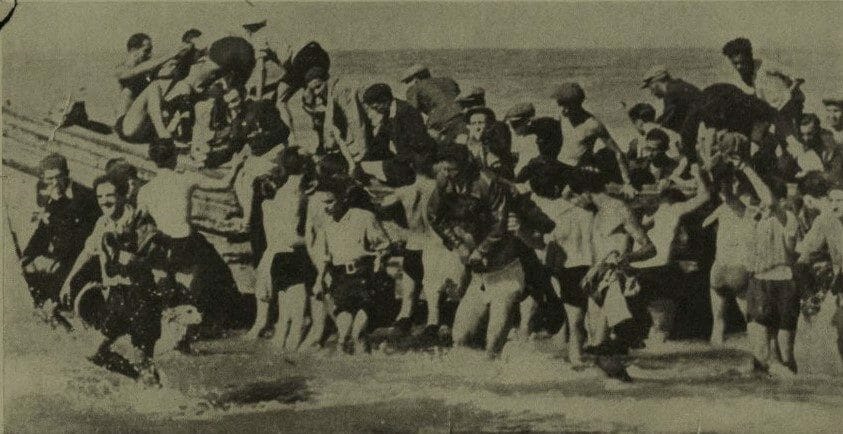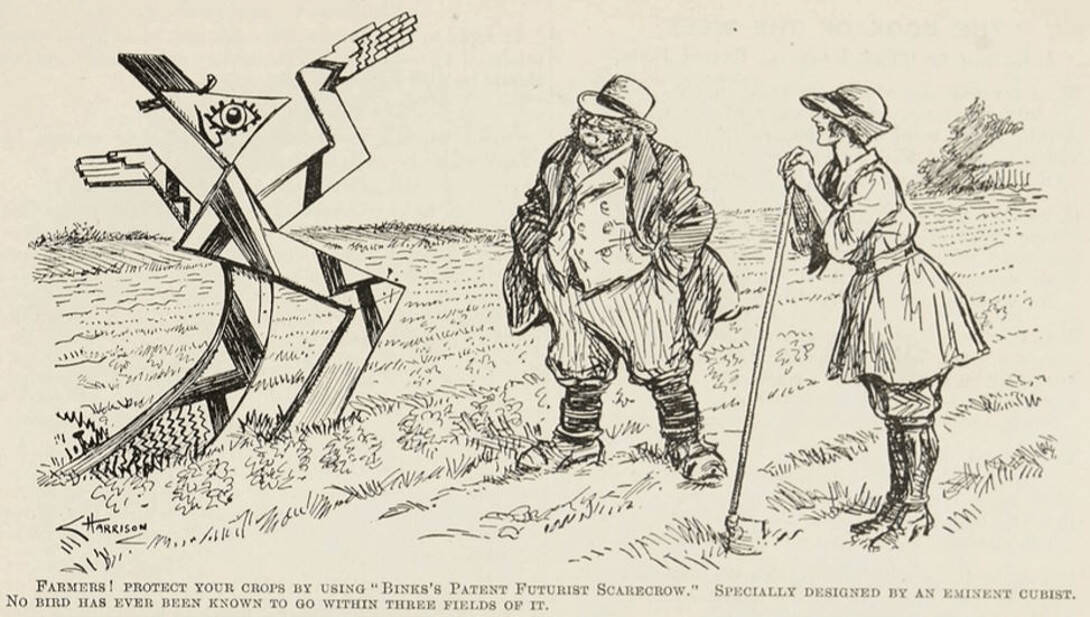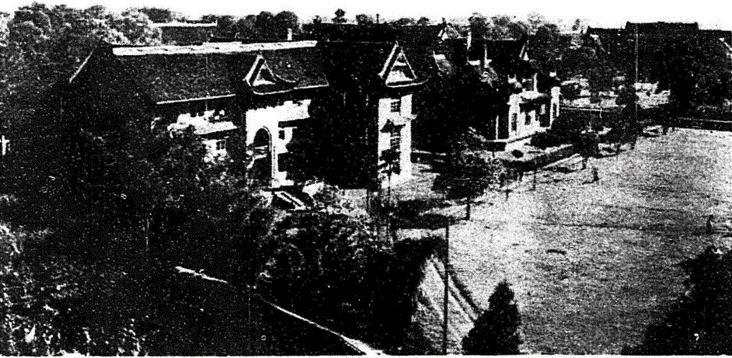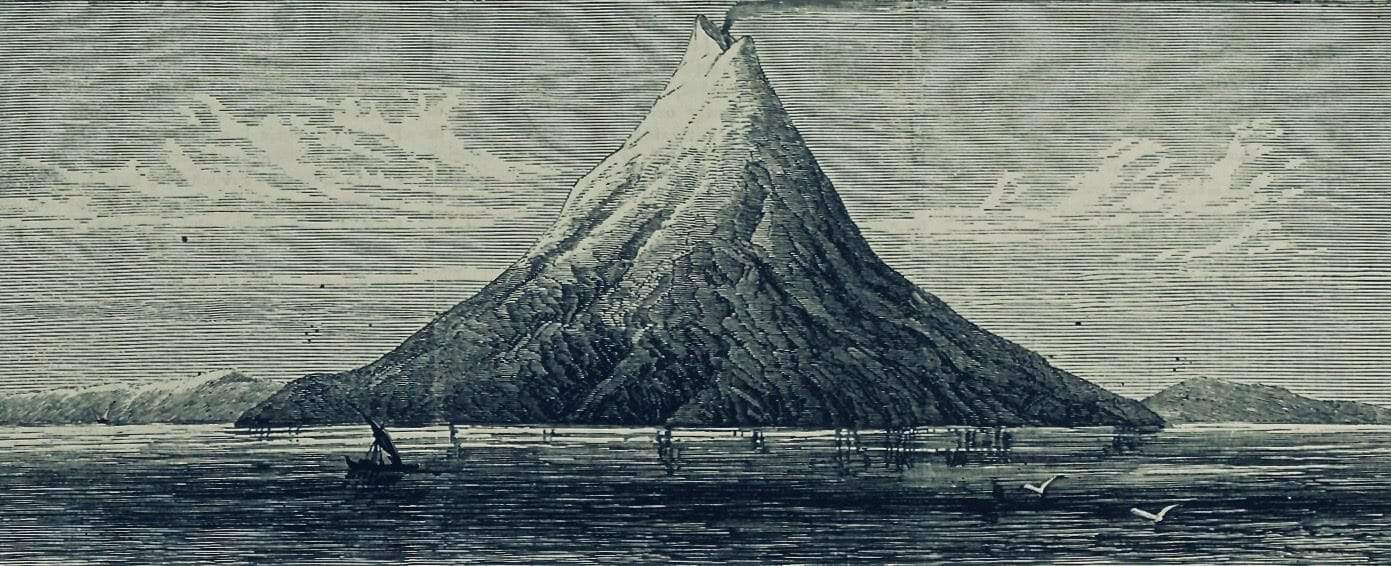| By Lindsey Gervais, Digital Pedagogy Specialist and Margaret Waligora, Product Manager |
In this blog post we’re delighted to share some exciting new developments made to the Gale Digital Scholar Lab, including the much-anticipated release of the Learning Center! This release represents our efforts to put learning and teaching digital methods at the forefront of the platform – providing students, instructors and researchers with the instructional scaffolds needed to navigate and learn through Gale Digital Scholar Lab’s workflow. Users can now access the assistance or instructional supplements they need wherever they are in the Gale Digital Scholar Lab, allowing them to situate learning within the context of the overall research process. We’re delighted to release this suite of instructional materials, developed in collaboration with our in-house scholars and experts within the digital humanities field.

